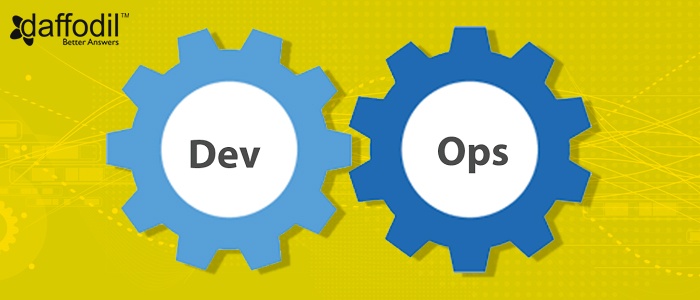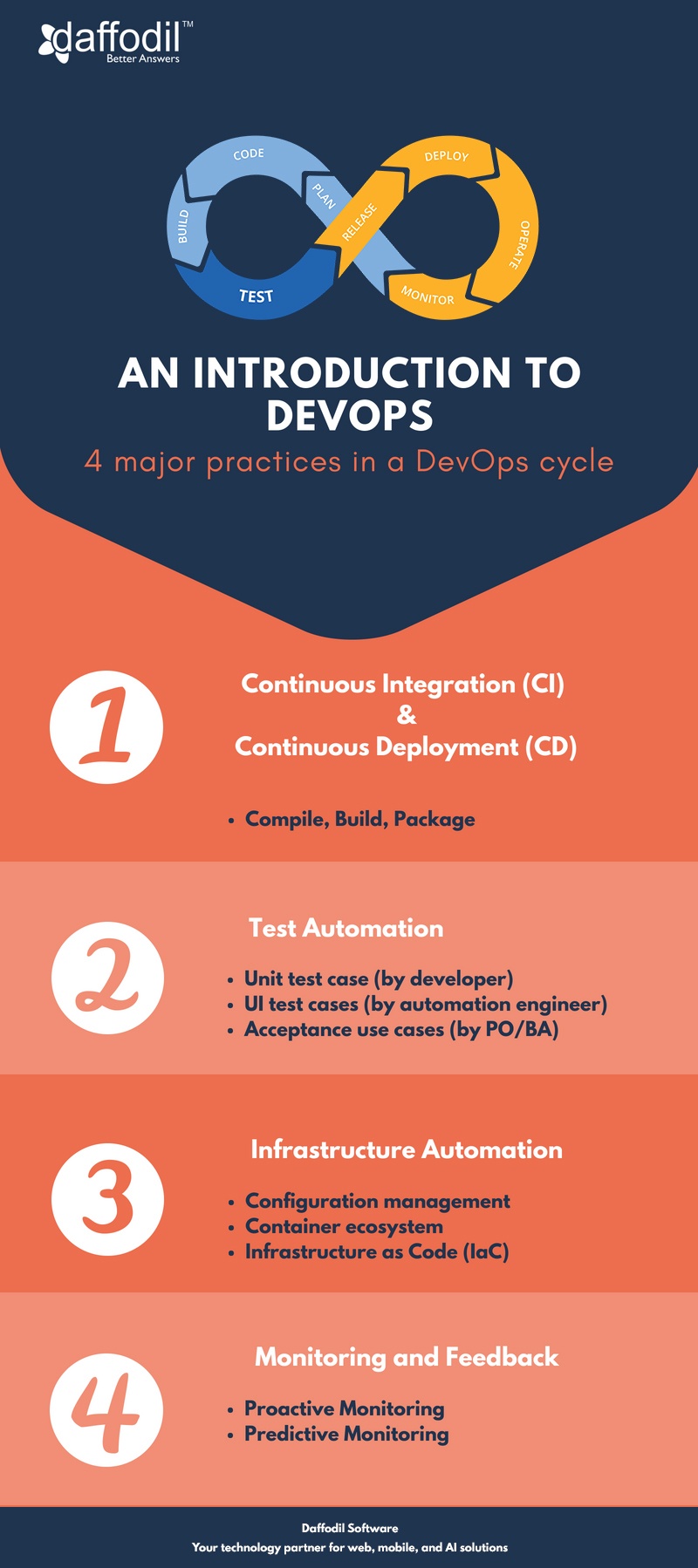 DevOps represents a shift in IT culture. With adoption of agile and lean practices, the software development approach ensures rapid IT service delivery.
DevOps represents a shift in IT culture. With adoption of agile and lean practices, the software development approach ensures rapid IT service delivery.
By emphasizing on people and the culture, DevOps aims to improve the collaboration between the development and operations teams. This ensures that software applications have shorter time to market, successful and frequent releases, and steadfast recovery, by dividing the project into sections to have better visibility.
DevOps for software development is dependent upon communication, collaboration, and tools for automation. At every level of development cycle, there are some practices defined that enable businesses to add value to the project in terms of time, automation, performance, risk management etc.
So, if your business is moving from traditional development model to DevOps, then there is a strategic approach followed for the transition. However, before you get into the details and cultural shift for switching to DevOps, let’s understand various phase of DevOps implementation in software development cycle. So, let’s get back to basics.




